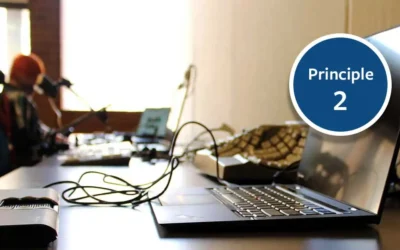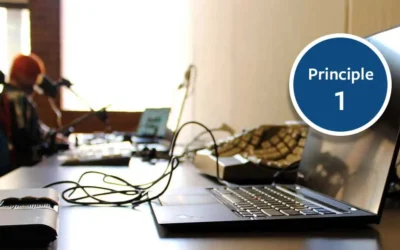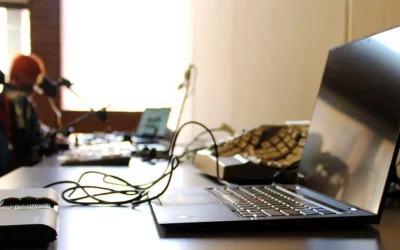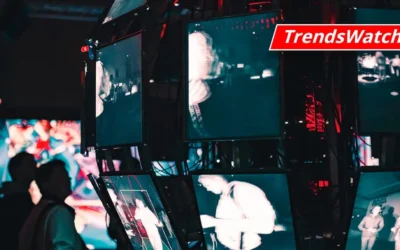Where are the Best Places to Find Museum Grants? Part 2

Rachael Cristine Woody
Last week we covered the first three of six best places to find museum grants, read here. This week we’ll conclude with the final three of six.
As a reminder, here are the top six places to find museum grants:
At-a-Glance, The Top Six Places to Find Museum Grants
- The State Historic Preservation Office
- Past Grant History for You and Your Peers
- Conference Booths and Exhibit Halls
- Federal and National Funding
- Search Engines
- Databases
4. Federal and National Funding
Federal funding is when tax payer dollars go toward a federal institution who are charged with disbursing the money in accordance with their mission. National funding is non-federal dollars and can be private or nonprofit funds gathered and disbursed nationally by non-municipal organizations.
In the US, all Federal Grants can be found via Grants.gov. In Canada they can be found via Canada.ca.
National (non-municipal) funders can be found via the National Council for Nonprofits, your professional organizations, and Candid (Foundation Center and GuideStar have merged to form Candid).
And don’t forget Lucidea has compiled US and Canadian grants in its Grants Directory, which offers drill-down searching for you to quickly and easily find national-level grants that work for you. You can read more about this resource and access it via this post: We Invite You to Leverage a New Grant Resource for LAMs.
5. Search Engines
A search engine is a place on the internet where you can type in a string of keywords or a question and receive results. Google and Bing are common search engines. This is a great place to start, especially if you’re focused on grants at a more local level as they wouldn’t be included in larger databases. However, keep in mind that the search results are dependent upon how good your search query is as well as how good the Search Engine Optimization is for the grant websites.
Tip: During your internet searches, be sure to include the organization type, project type, and other project-specific keywords. For example: “small museum digitization of 3d cultural heritage artifacts”.
A rough internet search can be more helpful than a database as it connects you directly with funding agency websites and doesn’t skew the search based on potentially outdated information or pay-to-play subscription schemes.
6.Check the Databases Available to You
There are databases and online search portals that are free or subscription based. At the national-level I recommend Lucidea’s new Grants Directory—a completely free resource made especially for Libraries, Archives, and Museums (LAMs). (Regional and state/province-wide grants are planned to be added next). From there it’s a step down to the more general, grant aggregators such as: Candid (Foundation Center and GuideStar merged), Grants.gov, GrantWatch, GrantScape, GrantStation, GrantForward, GrantSelect, PivotRP, and instrumentl.
A common question I receive is: “Are paid subscriptions to grant aggregators worth it?”
Answer: An unenthusiastic: “It depends.” If you’re at an academic or large nonprofit institution then a subscription may make sense given the multiple types of projects that vary from museum collection work. If you’re a smaller and more specialized LAM organization; then it doesn’t make sense to pay for a database subscription.
Tip: Many public libraries have either hard copies of grant directories, and/or have a subscription to online grant aggregators. Check your local library for options.
Is It Worth Hiring a Grant Acquisition Specialist?
Museum staff may be familiar with hiring a grant writer to assist them in writing grants, but it may not occur to them that a grant acquisition specialist can help them find the best grant matches for them. To learn more about when and how you should work with a grant specialist, please see this post: How and When a Museum Should Hire a Grant Specialist.
Conclusion
Hopefully this two-part series on the best places to find museum grants has helped illuminate both the local and national grant options available to you, as well as when it’s worth it (or not) to pay for a database subscription. I encourage you to research and try out all six places and familiarize yourself with all available grant options. The more familiar you are with your options, the faster you’ll be at finding the right opportunity for your museum.
Missed part 1? Read here: “ Where are the Best Places to Find Museum Grants? Part 1 ”
Additional Reading
3 Common Hurdles to Get Over and Get into Grants
8 Tips to a Bulletproof Grant Proposal
Creating a Museum Grant Writing Roadmap for 2019
Define Museum Success & Measure It
How to Find the Best Museum Grant Funding Opportunity
How to Determine Museum Grant Eligibility: A Check List
How to Determine Museum Grant Suitability: A Check List
How to Increase Museum Grant Success by Mastering the Lexicon
Identifying Museum Funding Roadblocks
Museum Grant Application: What Happens if You Fail?
Museum Grant Pitfalls—Know & Avoid Them
Museum Project Break Down—A Template
Museums with Zero Funding—Stop Saying These 4 Phrases
Ready to Read: A Survivor’s Guide to Museum Grant Writing

Rachael Cristine Woody
Expert consultant Rachael Cristine Woody advises on museum strategies, collections management, digital museums, and grant writing for a wide variety of clients, and is a popular presenter and Lucidea Press author. Learn about Lucidea’s Argus Museum CMS for virtual, multimedia presentation of collections, visitor engagement, and museum staff productivity and impact.
Never miss another post. Subscribe today!
Similar Posts
Museum Collections Online with Accessibility Principle 2: Operable
Compliance with WCAG Version 2.1 Principle 2: Operable
Museum Collections Online with Accessibility Principle 1: Perceivable
Compliance with WCAG Version 2.1 Principle 1: Perceivable, affecting information published from museum CMS to an online portal; expert guidance
Accessibility Standards for Museum Collections Online
A museum’s compliance with the ADA Title II 2024 update has benefits for its online content and for the museum’s community of users.
Museum TrendsWatch 2024: Digital Twins and Doom Loops & Combatting the Loneliness Crisis
Digital Twins is the construction of a digital surrogate for a person, place, or thing—one of several new concepts and trends in the museum sector.




Leave a Comment
Comments are reviewed and must adhere to our comments policy.
0 Comments